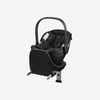Unlocking the Magic: Why Playtime Is the Ultimate Power-Up for Baby Development!👶
Playtime for babies plays a fundamental role in child development. It's not just about fun and games; it's also an essential educational tool that impacts a child's physical, emotional, and cognitive growth. Whether it's through a simple game of peek-a-boo or the use of developmental toys, playtime instills a sense of curiosity, fosters creativity, and promotes various skills vital for a child's development.
How Does Playtime Support Positive Child Development?
Playtime can significantly aid in the all-round development of a child. It contributes to the physical development by improving fine motor skills and hand-eye coordination. Emotionally, it allows children to express their feelings and foster self-confidence. Cognitive development is also enhanced as children are encouraged to solve problems, make decisions, and think critically. In essence, playtime is not just a fun activity but a foundational platform for fostering essential life skills.
The Bababing Top 10 Playtime Activities: Unleash the Power of Fun to Foster Child Development! 🚀✨
Playtime is one of the most effective tools that stimulate child development. Here are our top 10 playtime activities that not only ensure your baby has a great time, but also contribute to their growth and development:
- Peek-a-Boo: This classic game is excellent for babies as it helps develop object permanence, an essential cognitive milestone.
- Sensory Bins: Filled with different materials, sensory bins stimulate a child's senses and foster curiosity.
- Reading: Reading colorful picture books to your child promotes language development and enhances imagination.
- Singing and Dancing: These activities improve motor skills and introduce rhythm and music.
- Stacking Blocks: This simple activity encourages fine motor skills and spatial awareness.
- Puzzles: Simple puzzles can enhance problem-solving skills and hand-eye coordination.
- Finger Painting: This creative activity can boost your child's fine motor skills and creativity.
- Tummy Time: Essential for babies, tummy time strengthens neck, torso, and arm muscles.
- Mirrors: Playing with mirrors encourages self-recognition.
- Outdoor Play: Allow your baby to explore nature to foster curiosity, physical growth, and sensory development.
Remember, these activities aren't just about keeping your baby entertained. They're also about sparking their curiosity, fostering their creativity, and giving them the skills they need to grow and develop.
Which products hold the magic key to unlocking a child's full potential? Let's dive into the world of child development and discover the secret ingredients to ignite their brilliance! ✨
When it comes to facilitating child development, the right toys and products can make a world of difference. From educational toys that stimulate cognitive growth to creative tools that enhance fine motor skills and imaginative play, here's a curated list of products that are not just fun, but also instrumental in your child's development:
- Developmental Toys: Toys like building blocks, puzzles, and shape sorters are great for promoting problem-solving skills, spatial recognition, and fine motor skills.
- Books: Picture books and interactive storybooks foster language development and enhance imagination.
- Art Supplies: Crayons, markers, and finger paints can boost your child's creativity and fine motor skills.
- Musical Instruments: Simple instruments like drums, xylophones, and shakers introduce rhythm and music, improving motor skills.
- Sensory Toys: Toys with different textures, shapes, and colors stimulate a child's senses and foster curiosity.
- Outdoor play equipment: Swings, slides, and sandbox toys encourage physical activity, coordination, and sensory development.
Remember, the key is not about having the most toys, but choosing the right ones that offer diverse and engaging learning experiences.
Nurturing mindfulness in child development: because even little minds need a moment to chill! 😌✨
Introducing mindfulness activities during playtime for babies can bring about significant improvements in their cognitive and emotional development. Mindful play involves encouraging children to engage in activities with full awareness and attention, whether they are stacking blocks, coloring a picture, or listening to a story.
This practice fosters a sense of presence and awareness in the child, laying the groundwork for emotional regulation, attention to detail, and conscious decision-making skills. From mindful breathing exercises to guided sensory play, incorporating mindfulness into your child's play routine can be a powerful tool for promoting holistic growth and development.
Being a mindful parent involves fostering an environment of empathy, understanding, and conscious interaction. It means being present not only physically but also emotionally and mentally during your child's playtime. This involves active listening, demonstrating patience, and offering guidance when necessary.
By modeling mindfulness, parents can promote a sense of security, confidence, and self-awareness in their children. Supportive actions could include encouraging your child to express their feelings, acknowledging their efforts, and promoting curiosity. This mindful approach enhances the positive impact of playtime for babies, contributing significantly to child development.
Can Baby Rockers Rock Child Development? 🤘
Baby rockers, with their rhythmic motion, can be an engaging sensory experience for infants and can contribute to their development in a number of ways. They provide a secure, comforting environment that can soothe a baby, helping them develop a sense of stability and safety. Furthermore, the gentle rocking motion can stimulate their vestibular system, which is integral to balance and spatial orientation. Some baby rockers also come with attached toys or mobiles that encourage reaching and stretching, promoting motor skills development. However, it's important to note that while baby rockers can be a useful tool, they are not a substitute for active playtime where babies can explore, interact, and learn.
Unveiling Bababing Baby Rockers and Swings: The Playful Route to Development! Get ready for a rocking good time! 🚀
Bababing's range of baby rockers and swings are thoughtfully designed to stimulate your baby's senses, promote motor skills, and provide a safe and comforting environment.
Crafted with love and understanding of a child's needs, these products offer an exciting blend of fun and learning that supports your baby's holistic development.
The rhythmic rocking motion can soothe your baby, fostering a sense of stability, while the attached toys or mobiles encourage reaching and stretching, thereby enhancing motor skills. Remember, while Bababing baby rockers and swings are a great tool for child development, they should be used in conjunction with active playtime to ensure your baby gets a wholesome mix of activities.
The Playtime Paradox: Why Depriving Children of Fun is No Child's Play!
Depriving children of playtime can have severe repercussions on their overall development. It can lead to a lack of social skills, reduced physical fitness, limited creativity, and decreased cognitive development.
A child's interaction with the world through play is vital to their emotional development, as it helps them understand and manage their feelings. That's why it's crucial to incorporate playtime into your child's daily routine. Remember, balance is the key - a blend of guided activities and free play can result in a holistic development environment for your child.
Have we lost the enchanting spell of childhood creativity and imagination in this high-tech era? It seems like tech has stolen the show, but let's find that magic and bring it back! ✨
In the digital age, the role of technology in child development is a double-edged sword. While it offers a myriad of educational opportunities, if not carefully managed, it can impede the natural progression of creativity and imagination in children. Parental involvement in guiding a child's interaction with technology is pivotal to ensure it enhances rather than hinders their development.
Parents must strive to strike an equilibrium between digital and traditional play, fostering an environment that fuels their child's imagination, creativity and physical prowess. Remember, a child's brain is like a sponge, so diversifying their experiences is crucial for well-rounded development. Parental oversight is not about limiting tech-time but recognising the value of traditional play and incorporating it meaningfully into their child's routine.
Rediscovering the Enchantment of Childhood while Boosting Our Children's Cognitive Abilities! ✨
Despite the digital wave, we can revive the magic of childhood by embracing traditional forms of play. These not only foster creativity and imagination but also serve as a catalyst for cognitive development. Introducing toys that spark curiosity, like building blocks or shape sorters, can enhance spatial awareness and problem-solving skills. Incorporating story time can bolster language acquisition and literacy skills. Outdoor play can ignite an interest in the natural world, promoting scientific thinking and environmental consciousness.
Simultaneously, it's essential to harness the power of technology for cognitive development. Educational apps and games can make learning fun and interactive, encouraging children to explore new concepts and ideas.
Striking a balance between traditional play and technology is key. By doing so, we can unlock the door to a world of magic and wonder, where children can grow and develop cognitively while still cherishing the joy and innocence of their childhood.
The Importance of the Bedtime (or Any Time) Story - Quit Letting the iPad Do It! 📚
In the digital age, we often find ourselves relying on technology to keep our children entertained. While educational apps and videos have their place, they can never replace the profound influence of a good old-fashioned story. Reading to your children, be it at bedtime or any time of the day, allows for a one-on-one bonding moment that an iPad cannot replicate. It builds emotional intimacy, cultivates empathy, and exposes children to a rich vocabulary. Stories also stimulate their imagination and foster creativity, which are fundamental elements in child development. So, put down the iPad and pick up a book - your child's mind and memories will thank you!
















